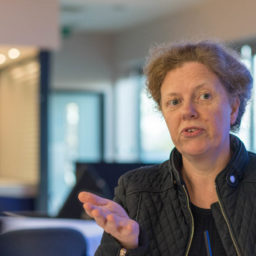
Nancy Dixon is a researcher and consultant who focuses on the people side of knowledge management. Nancy is a good friend and we are working closely together along with John Hovell to develop the concept of Conversational Leadership. Sharing Tacit Knowledge – the story about Xerox Copy Repair Technicians | Nancy Dixon WebsiteCommon Knowledge AssociatesLinkedinNancy DixonBlogConversation … Continue reading Nancy Dixon Researcher and consultant

Our most effective knowledge management tool is conversation. The words we choose, the questions we ask, and the metaphors we use to explain ourselves are what determine our success in creating new knowledge as well as sharing that knowledge with each other. | Nancy Dixon Continue reading Our Most Effective Knowledge Management Tool Is Conversation Nancy Dixon

Community of Practice ** Conversare Events Close Pop-up all posts in this chapter What’s the Vibe? Please be patient as this may take up to a minute to load… Close Relationships shape how we work together. Too often, tasks take priority over connection, making collaboration difficult. Building relationships first—connection before content—creates trust, engagement, and openness, … Continue reading Connection Before Content Without relatedness, no work can occur

Knowledge Management has evolved since the mid-90s, shifting from managing information to building collective knowledge. The challenge lies in adapting KM practices to meet today’s complex needs. A four-level framework can provide a structured approach, helping organizations move from information management to supporting agency and communityship. Continue reading The Four Levels of Knowledge Management The relation between Conversational Leadership and Knowledge Management

Conference Breakfasts and Dinners Peter Block’s Four Ownership Questions Close Pop-up all posts in this chapter What’s the Vibe? Please be patient as this may take up to a minute to load… Close At the end of each and every presentation at a conference, there is the obligatory question from the chairperson to the audience … Continue reading Are There Any Questions? Q&A is not interaction

Take Responsibility for the Conversation ** Disagree Constructively Close Pop-up all posts in this chapter What’s the Vibe? Please be patient as this may take up to a minute to load… Close Speak with less conviction: Persuading others is not easy. It is generally believed that we convince others by speaking with conviction. Is this … Continue reading Speak with Less Conviction Speaking with conviction inhibits learning

Peer Instruction Vs. Peer Learning Learn by Talking Close Pop-up all posts in this chapter What’s the Vibe? Please be patient as this may take up to a minute to load… Close How can we effectively share knowledge, particularly tacit knowledge, which cannot be easily encoded into information or implicit knowledge that is not consciously … Continue reading Sharing Knowledge Through Conversation Knowledge isn’t there the way ore is buried

Sharing Knowledge Through Conversation Collective Sense-making Close Pop-up all posts in this chapter What’s the Vibe? Please be patient as this may take up to a minute to load… Close Learn by talking: We learn when we talk. You might think that you don’t learn when talking but learn when listening. It is not as … Continue reading Learn by Talking When speaking we organize cognitively what we know

Knowledge Café: Going Off-topic Introduction: Knowledge Café Process Close Pop-up all posts in this chapter What’s the Vibe? Please be patient as this may take up to a minute to load… Close In a Knowledge Café, there are no report-outs The report-out You are without a doubt familiar with the report-out. Frequently in workshops, the … Continue reading Knowledge Café: No Report-outs There is nothing more boring than a report-out

Learn by Talking Introduction: Conversational Learning Close Pop-up all posts in this chapter What’s the Vibe? Please be patient as this may take up to a minute to load… Close How do we make sense of the world so we can act in it? Collective Sensemaking How do we make sense of the world? Sense-making: … Continue reading Collective Sense-making The Knowledge Café is a powerful collective sense-making tool

Entrained Thinking The Care in Curiosity ** Close Pop-up all posts in this chapter What’s the Vibe? Please be patient as this may take up to a minute to load… Close There is a problem when talking about organizational life: our use of language. Managers are called managers, and their so-called subordinates — the people … Continue reading Managers Are Employees Too ** They can be hired, fired and appraised just like everyone else











